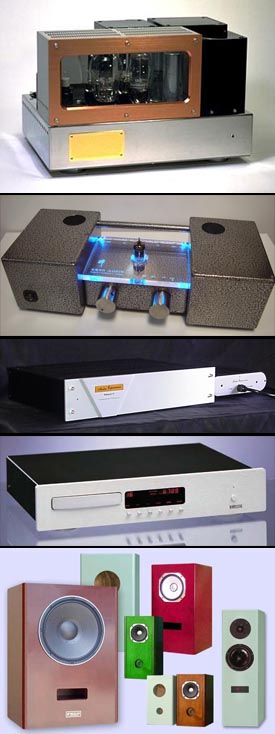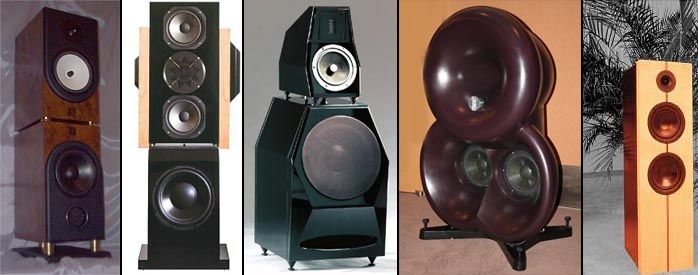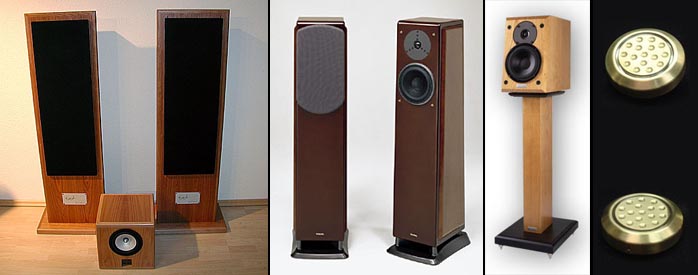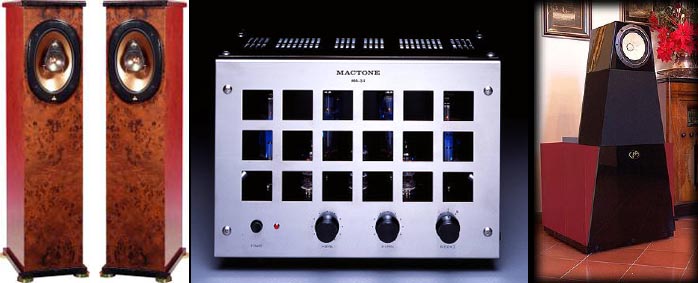 |
|||||||||
 |
|||||||||
 |
|||||||||
 |
In the changing market of audio today, a new breed of importer is on the rise. An existing retailer adds importation not with the intent to establish widespread distribution. Instead, he becomes the one-stop source for this line. Someone without prior retail experience but enthusiasm for the hobby signs on a few lines and does the same. This import/retail-direct arrangement is attractive for a number of reasons. The Internet has conditioned shoppers to expect pricing that reflects the country of origin regardless of the costs incurred by overseas shipping, customs, distributor and dealer margins, advertising and service support. By eliminating the usual dealer markups, an importer who does not become a distributor can enjoy complete brand exclusivity and turn enough sales in a market too oversaturated for multiple dealers to coexist, never mind the discount haggling this invites with on-line power shoppers. The number of brands not yet represented in the US is higher than you may think. The following is an arbitrary short list of examples: Acoustic Plan | Art & Technology | Audio Art | Audio Kabel | Audionet | Acoustic Signature | Acoustic Solid | BC Acoustique | BKS Audio | Bridge Audio Labs | Clearlight Audio | Diva Audio | Dynamic Precision | Dynavox | Eltus | GEA | Gruensch | Harmony Design | HGP Audio | HMS Elektronik | iLungo | ISEM Audio | Kubotek | Image Loudspeakers | Imamura | Lindemann Audio Technik | Luxman | Mal Valve | Mejogran | MPC Audio | Natural Sound Octave | Omtec | Phase Tech | Phonosophie | Reussenzehn | Resolution | Rosen Kranz | Schallwand | SD Sound | Softone | Symphonic Line | TAOC | Tatematsu Onko | Technical Brain | Technocraft Audiodesign | Trigon Elektronik | Uesugi | Whatmough Speakers | Xavian | Yoshiba | YS Audio | Zarathustra | Zenn Audio Components | Ziphona | ZVone Raspor |
||||||||
 |
|||||||||
 |
|||||||||
 |
|||||||||
| The opportunities for this business model are ripe for numerous reasons beyond the above. The traditional brick & mortar network has eroded. Customers shop across state lines by phone and via e-mail. Exclusivity is a powerful -- and arguably vital -- weapon for a retailer. Part of the same scenario is the inability of foreign vendors to establish a beach head in the US. The good dealers already represent all the lines they can reasonably support. Pursuing a traditional distribution house with the expectation of widespread presence in the US is more and more unrealistic. Enter the single importer/reseller. He covers the entire market by himself. Naturally, not just anyone should be entrusted with such a position. One of the most important ingredients outside of know-how and good work ethics is proper capitalization. An importer is expected to inventory product for timely deliveries. Placing individual orders with the overseas factory whenever an order has cash hit the barrel is not acceptable. The customer could do this herself. Inventories also insure that replacement units or temporary loaners are on hand for owners who suffer malfunctions. |
|||||||||
 |
|||||||||
 |
|||||||||
 |
|||||||||
An importer is also expected to set up a service department or contract with an existing one to cover warranty and eventual out-of-warranty repairs. If reviews are desired, the importer traditionally assumes responsibility for his market and makes review loaners available. While the opportunities in this niche are real, the related responsibilities are too. After all, paying customers have every right to expect more than just the product in exchange for their hard currency. Anyone can combine a foreign visit with a purchase there, then FedEx back the acquisition if it won't travel conveniently as added luggage in a passenger airplane. What an importer offers beyond an exchange of hardware for cash is instant access, support and expertise. In the absence of multiple demo facilities -- something that is relinquished without the traditional distribution approach -- such an importer/reseller will need his own suitable facility and fly prospective customers in. |
|||||||||
 |
|||||||||
As in any other endeavor involving sales, without demand there is no business. How to develop brand visibility, brand recognition, brand desirability and eventual brand demand is the biggest challenge this particular model has to face. While the concept itself appeals to enthusiast hobbyist who perhaps wish to retire from their regular job with something they enjoy better, they very often lack the one essential ingredient to make this business model fly: the ability for shameless capitalist self promotion. Without the location, location, location recipe -- and let's face it, not even a downtown Manhattan retail location these days is any guarantee for survival -- the sole importer/reseller needs buzz, buzz, buzz. Otherwise he'll be staring at an expensive system and a garage filled with boxes and no traffic or phone calls. Still, for the right and rare character endowed with passion, capital and marketing savvy, today's concept of facing a changing market reality does have considerable merit as long as you can afford time. Developing demand won't happen overnight regardless of product quality or exclusivity! |
|||||||||
 |
|||||||||
 |
|||||||||